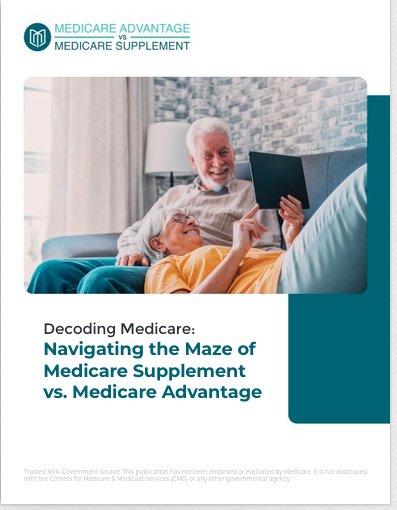Key Takeaways
- Understanding the basics of Medicare can help you make informed decisions about your health coverage.
- Navigating Medicare enrollment and coverage options can be straightforward with the right information and resources.
Ready for Medicare? A Conversational Guide to Your First Steps
As you approach the age of 65, you might be thinking about Medicare and what it means for your health coverage. This guide is designed to walk you through the basics in a simple and conversational way, ensuring you feel confident and prepared to make informed decisions about your healthcare.
Discovering Medicare: What You Need to Know
Medicare is a federal health insurance program primarily for individuals aged 65 and older, though it also covers some younger people with disabilities and certain medical conditions. Understanding the basics of Medicare is essential for navigating your healthcare options effectively.
Medicare is divided into different parts, each covering specific services:
- Part A: Hospital insurance, covering inpatient hospital stays, care in a skilled nursing facility, hospice care, and some home health care.
- Part B: Medical insurance, covering certain doctors’ services, outpatient care, medical supplies, and preventive services.
- Part C: Medicare Advantage Plans, which are an alternative to Original Medicare and are offered by private companies approved by Medicare.
- Part D: Prescription drug coverage, which helps cover the cost of prescription drugs.
By understanding these components, you can better grasp what Medicare offers and how it can benefit you.
Beginning Your Medicare Journey
Starting your Medicare journey might seem overwhelming, but it doesn’t have to be. The first step is to determine your eligibility and enrollment period. Most people become eligible for Medicare at age 65. If you’re already receiving Social Security benefits, you’ll be automatically enrolled in Parts A and B. If not, you’ll need to sign up during your Initial Enrollment Period, which starts three months before you turn 65 and ends three months after your birthday month.
There are different times when you can sign up for Medicare:
- Initial Enrollment Period (IEP): The seven-month window around your 65th birthday.
- General Enrollment Period (GEP): From January 1 to March 31 each year, for those who didn’t sign up during their IEP.
- Special Enrollment Period (SEP): Available in certain situations, such as losing employer coverage.
Understanding these periods can help you avoid late enrollment penalties and ensure you have the coverage you need when you need it.
Decoding Medicare Parts: A, B, C, and D
Medicare’s different parts can be confusing, so let’s break them down in a simple way:
-
Part A (Hospital Insurance): This part covers inpatient hospital stays, care in a skilled nursing facility, hospice care, and some home health care. Most people don’t pay a premium for Part A if they or their spouse paid Medicare taxes while working.
-
Part B (Medical Insurance): Part B covers doctors’ services, outpatient care, medical supplies, and preventive services. Unlike Part A, there is a monthly premium for Part B, which varies based on your income.
-
Part C (Medicare Advantage): These plans are offered by private insurance companies and provide all of your Part A and Part B benefits. Many Medicare Advantage Plans include prescription drug coverage (Part D) and may offer additional benefits such as vision, hearing, and dental care.
-
Part D (Prescription Drug Coverage): Part D helps cover the cost of prescription drugs and is available to everyone with Medicare. Plans are offered by insurance companies and other private companies approved by Medicare. Each plan can vary in cost and drugs covered.
Understanding the differences between these parts can help you decide which coverage options best meet your healthcare needs.
Enrollment Made Simple: When and How
Knowing when and how to enroll in Medicare is crucial to ensure you have the coverage you need without any gaps. Here’s a step-by-step guide:
-
Initial Enrollment Period (IEP): This is the seven-month period surrounding your 65th birthday, starting three months before and ending three months after your birthday month. It’s the best time to sign up for Parts A and B if you’re not automatically enrolled.
-
General Enrollment Period (GEP): If you miss your IEP, you can sign up during the GEP, which runs from January 1 to March 31 each year. Your coverage will start on July 1, but you may have to pay a late enrollment penalty.
-
Special Enrollment Period (SEP): You might qualify for a SEP if you’re covered under a group health plan based on your or your spouse’s current employment. You can sign up for Medicare Part B during the eight-month period that begins the month after your employment ends or the group health plan insurance ends, whichever happens first.
-
Medicare Advantage Open Enrollment Period: From January 1 to March 31, if you’re already enrolled in a Medicare Advantage Plan, you can switch to another Medicare Advantage Plan or switch back to Original Medicare and join a Medicare drug plan (Part D).
By following these steps, you can ensure you enroll in Medicare on time and avoid any potential penalties.
Exploring Your Coverage Choices
Once you’ve enrolled in Medicare, you’ll need to decide how you want to receive your benefits. You have two main options:
-
Original Medicare (Parts A and B): You can visit any doctor or hospital that accepts Medicare. You’ll pay a deductible and coinsurance for services, and if you want prescription drug coverage, you’ll need to enroll in a separate Part D plan.
-
Medicare Advantage (Part C): These plans are offered by private insurance companies and include all benefits under Part A and Part B. Many plans also include Part D coverage and additional benefits like vision, dental, and hearing. You may have to use a network of doctors and hospitals and pay different out-of-pocket costs.
Deciding between Original Medicare and Medicare Advantage depends on your healthcare needs, preferences, and budget. Consider factors like the flexibility of seeing any doctor, additional benefits offered, and overall costs when making your decision.
Grasping Medicare Expenses
While Medicare provides valuable coverage, it’s important to understand the costs involved to avoid surprises. Here are the main expenses associated with Medicare:
-
Premiums: Most people don’t pay a premium for Part A if they or their spouse paid Medicare taxes while working. Part B has a monthly premium, which is based on your income. Medicare Advantage and Part D plans also have monthly premiums, which vary by plan.
-
Deductibles and Coinsurance: You’ll pay a deductible for each benefit period under Part A and an annual deductible for Part B. After meeting your deductible, you’ll typically pay 20% of the Medicare-approved amount for Part B services. Medicare Advantage plans have different cost-sharing arrangements, so it’s important to review each plan’s details.
-
Out-of-Pocket Maximums: Original Medicare doesn’t have an out-of-pocket maximum, meaning you could pay a significant amount if you need extensive care. Medicare Advantage plans, on the other hand, do have a yearly limit on out-of-pocket costs for services covered by Part A and Part B.
Understanding these costs can help you budget for your healthcare needs and choose the best plan for your situation.
How to Pick the Best Plan for You
Choosing the right Medicare plan can feel daunting, but considering a few key factors can simplify the process:
-
Healthcare Needs: Assess your current and future healthcare needs. Consider the types of services you use frequently and whether you expect any significant changes in your health.
-
Costs: Compare the premiums, deductibles, and out-of-pocket costs for different plans. Look at how much you’ll pay for services and prescriptions, as well as any additional benefits offered.
-
Provider Network: If you have preferred doctors and hospitals, check if they’re in the network for the Medicare Advantage plans you’re considering. Original Medicare allows you to see any provider that accepts Medicare.
-
Additional Benefits: Some Medicare Advantage plans offer extra benefits like vision, dental, hearing, and wellness programs. Determine if these benefits are important to you and if they justify any additional costs.
-
Prescription Drugs: If you take medications, ensure the plan you choose covers your prescriptions and compare the costs. Part D plans and Medicare Advantage plans with prescription drug coverage can vary significantly in terms of formularies and costs.
Taking the time to evaluate these factors can help you select a plan that fits your healthcare needs and budget.
Seeking Additional Assistance
Navigating Medicare can be complex, but you don’t have to do it alone. There are numerous resources available to help you make informed decisions:
- Medicare.gov: The official Medicare website offers comprehensive information about enrollment, coverage options, costs, and more.
- State Health Insurance Assistance Program (SHIP): SHIP provides free, unbiased counseling and assistance to Medicare beneficiaries and their families.
- Licensed Insurance Agents: These professionals can help you understand your options and compare different plans. Be sure to choose an agent who is knowledgeable about Medicare and not affiliated with any specific insurance company.
- Medicare & You Handbook: This annual publication provides detailed information about Medicare benefits, coverage options, and rights.
By utilizing these resources, you can get the support you need to navigate Medicare with confidence.
Moving Forward with Confidence
As you embark on your Medicare journey, remember that understanding your options and being proactive about your healthcare needs is key. With the right information and resources, you can make informed decisions and choose the coverage that best meets your needs. Stay informed, ask questions, and seek assistance when needed to ensure you have the healthcare coverage you deserve.
Contact Information:
Email: [email protected]
Phone: 9725550123










